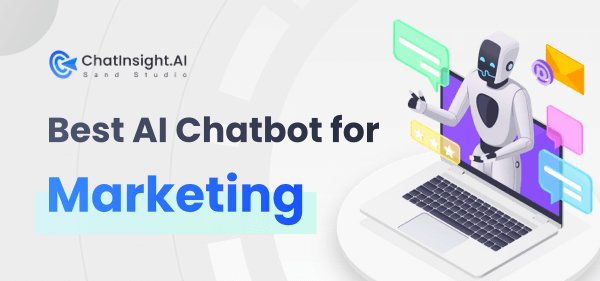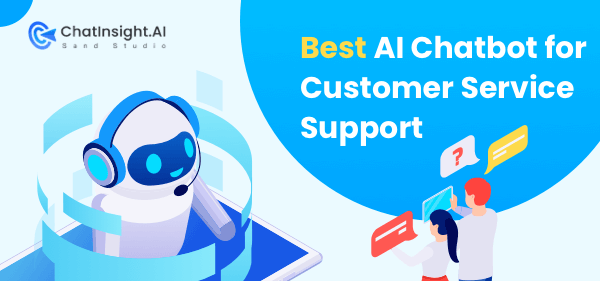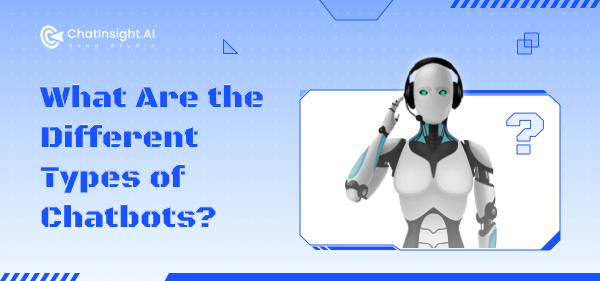Legal Chatbots in 2024: Transforming the Legal Industry
With the abundance of different AI tools in the market, we rely on chatbots for almost every aspect of our businesses. From managing resources to handling day-to-day tasks, its applications are expanding every day and are now reaching the legal industry.
As per a survey held by Statistica in March 2023, 51% of lawyers from the US, UK, and Canada wanted ChatGPT to assist in legal operations. Similar to ChatGPT, legal chatbots are AI-powered tools that offer users their required legal assistance by connecting through textual conversations.
These chatbots are programmed on large databases of legal knowledge to cater to wide dynamics of legal queries. From simple definitions to complex regulatory notices, legal chatbots greatly help big law firms, individual legal professionals, and clients.
In this blog, we'll explore different legal chatbots and their applications.
Part 1: How Legal Chatbots Work?
Just like other AI-driven tools, legal chatbots also work on training and implementing models. They are trained on legal information from law books, regulation policies, and constitutions of major countries stored in their knowledge base. As chatbots engage with people about legal matters, they keep learning more.
Initially, the working process starts with requirement gathering. The chatbot addresses user queries and categorizes the issue according to location, backgrounds of both parties, date, time, legal nature, etc. Next, it uses an advanced machine learning approach to run the query through its knowledge base and offer legal advice, example cases, or solutions suited to the situation.
However, if the case is beyond the comprehension of the chatbot's legal database, then it'll suggest the user consult a qualified lawyer for assistance.
Part 2: Advantages of Using AI Chatbots in the Legal Industry
Now that you know the work behind legal chatbots, you must be intrigued to learn more about its advantages. Here are some of the benefits offered to help the legal industry:
High Productivity
The major benefit offered by AI legal chatbots is that they help lawyers get much work done at a faster pace. According to Goldman Sachs, 44% of legal tasks can be automated using legal chatbots to avoid repetitive energy-taking tasks that add no value to their overall progress. Often, when a lawyer gets a case, they spend days examining their starting point.
In this case, chatbots help give them a heads up so they can focus on the better part of the case. For instance, instead of employing legal teams to review NDA, you can direct them toward high-priority jobs.
Detailed Research & Review
In a lawyer’s journey, there often comes a time when the solution is right in front of your eye, but you can’t find it. Another major benefit of an AI chatbot is that it can reveal mistakes, opportunities, or ideas that seem to be hidden from the human brain. It serves as a second pair of eyes to present a detailed review of the contract, pinpointing every useful information, even noticing deviations and identifying errors from standard contract terms.
Prompt and Efficient Contract Management
Artificial intelligence can also assist lawyers to handle their contract management process. As per World Commerce and Contracting, poor contract management can cost businesses 9% of their annual revenues. The AI chatbots can create, review, and even summarize any contract 10 times faster than manual resources, resulting in more efficiency.
Cost Effective Approach
Although startups can find legal AI chatbots to be a burden for their short-term finance goals, there are some chatbots that can cut costs with high margins by saving excess resources. Automation plays a huge role in reducing the cost of the task, which is more likely to be handed over to the outsourced contractor or independent lawyer.
Expandable Skills
Unlike human resources, legal chatbots can excel in learning new approaches and adapting to the latest trends. It’ll take many workshops and many failed cases for a lawyer to understand the transition, but the AI chatbot will take every opportunity to improve its skills.
Part 3: Best Legal Chatbots for 2024
Although the internet is loaded with many legal chatbots, you cannot rely on everyone for data security and compliance, especially when it comes to legal concerns. Following are our top recommendations for legal chatbots to try in 2024:
1 ChatInsight AI
When it comes to incorporating legal chatbots for your business, ChatInsight is the first AI-driven platform you should pick. It offers a well-versed legal database with built-in and custom training knowledge as per your requirements.
Its 24/7 availability and multilingual support make it excellent to be the front desk or customer representative for initial assistance to legal inquiries. The platform takes pride in seamlessly blending conversation and even tackling complex issues in a human-like manner, keeping up with data security.
With an intuitive interface, ChatInsight AI can be easily integrated with your current website or app with codeless deployment.
2 LawBot
LawBot works with the purpose of helping people examine, review, and summarize legal bindings, documents, and contractual agreements. All you need to do is upload any document or contract on this chatbot, and it’ll offer you comprehensive feedback.
Currently, LawBot can only be integrated with Slack, giving all the highlights of the document, a detailed explanation of each section, and the details that might have been missed. The review will also include legal concerns and regulatory recommendations regarding the document.
3 LawDroid
LawDroid is another legal chatbot assistance powered by artificial intelligence to focus on researching laws related to the case, gathering content related to legal documents, and summing up the contracts to save time and increase productivity. This tool also features client-centric chatbot support, picking up new leads for the case and replying to clients immediately for prompt inquiries.
LawDroid chatbot also provides lawyers with specialized assistance for personalized client interactions and improving their contractual management process. The case law research feature has helped many paralegals in winding up major cases in their careers.
4 LISA
LISA, or Legal Intelligence Support Assistant, is the robot lawyer that is officially the first impartial AI lawyer in the world. It was developed by Chrissie Lightfoot. It is designed to support small businesses and startups that don’t have the budget to hire a lawyer for legal consideration.
LISA can easily create a non-disclosure agreement in less than 15 minutes based on your detailed requirements. However, prompt action isn’t the only capability offered by LISA; it showcases impartiality, which means it can help you settle a dispute without being very objective on any side.
LISA is a user-friendly AI application accessible on both computers and smartphones. It guides the initial user through a series of questions to create a document, which is then sent to the reviewer. Using LISA, the reviewer can easily make any necessary changes. Once both parties are satisfied, the document is prepared for signing, forming a legally binding NDA.
5 Ask Lexi
Ask Lexi is an Australian-based legal chatbot that is trained on all laws related to their regulations and governing policies. It helps users draft contracts and other legal documents, including NDAs, Terms, Conditions, and Privacy Policies. Moreover, Ask Lexi even provides legal consideration using AI-powered chatbots. However, they have a restricted legal domain on which you can engage with the chatbot.
Ask Lexi website has a pick your type of legal question feature with which you can begin the chat without needing any integration with Messenger.
6 DoNotPay
DoNotPay is a free AI chatbot that focuses on helping consumers. Unlike other AI tools for legal matters aimed at law firms, DoNotPay is designed to help individual clients against big corporations like insurance companies, etc. Users can use AI assistance to cancel services, dispute parking tickets, reclaim money, and request refunds when companies are uncooperative.
Part 4: Use Cases for Legal Chatbots
Legal chatbots offer a vast dynamic of use cases that help improve the legal process for businesses and individuals. Some of the popular applications are:
- AI Front Desk: AI chatbots can help direct users to the relevant legal department as their requirement, acting as the first point of contact to handle legal queries.
- Legal Guidance: When at the initial stage of a case, it offers lawyers basic level or initial legal assistance and advice in response to the inquiries.
- FAQs: Legal chatbots also cater to instant replies by personalizing user experience for frequently asked questions and policies.
- AI-driven Contract Review: Without any hassle, a legal chatbot can gather requirements or directly connect with the system to automate contract management. It can create a top-notch, error-free contract ready to review and sign.
- Legal Support 24/7: Provides users with comprehensive support to answer customer-related questions and solve location or timing issues.
Part 5: Potential Challenges and Limitations of Legal Chatbots
While chatbots can automate a wide variety of crucial tasks for lawyers, they can not entirely replace human lawyers or their thinking for specific situations. Since legal chatbots are still evolving with technology, there might be some limitations connected with them. Some of those challenges are as follows:
Limited Scope: Legal chatbots are trained to respond in a particular manner on their pre-set algorithms, so they may not be able to cater to any out-of-the-bound issue. These chatbots have certain domains on which they can give legal advice and can’t make up their unique responses depending on given situations.
Lacks Personalizations: Most legal chatbots are meant to provide general advice and not individualized responses, making it monotonous and lacking a personal touch. Moreover, without personalization, the user may feel disconnected.
Language Barrier: Not all chatbots come with multilingual support, so that they can converse only in certain languages like English, Spanish, French, etc. People who don’t know those designated languages may find those chatbots useless.
Ethical Concerns: Due to unlicensed law practice, conflict of interest, and confidentiality concerns, legal chatbots can raise moral issues. Unquestioningly, depending on chatbots for legal consideration can have bitter consequences.
Technological Error: Since technology is constantly updating and its abuse is equally progressing, legal chatbots are vulnerable to data theft and other technical irregularities. It will negatively affect the reliability and accuracy of the legal advice.
Conclusion
Legal chatbots have transformed how we navigate legal complexities, offering prompt and reliable guidance. From contract reviews to answering legal queries, their applications are diverse and impactful.
Many law firms and individual lawyers benefit from the cost-efficiency and time-saving capabilities of AI-driven legal chatbots. If you are looking for a trustworthy legal companion, look no further than ChatInsight. This chatbot is designed to simplify legal technicalities, providing accurate solutions and helpful advice.







Leave a Reply.